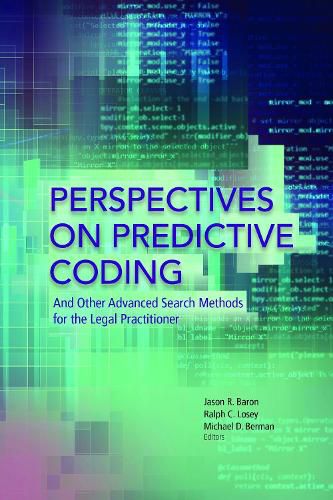Reliance on manual and keyword search methods alone is increasingly seen as inadequate for searching large volumes of information. There are concerns about the accuracy and efficiency of these methods, especially as compared with more advanced search techniques. This book provides a set of perspectives on predictive coding and other advanced search techniques, as they are used today by lawyers in pursuit of e-discovery, in investigations, and in other legal contexts, such as information governance. There is something in this book for everyone–novices, seasoned e-discovery practitioners, litigators, business lawyers, and technologists. It is meant to appeal both to practitioners who are seeking basic knowledge of what predictive coding and other advanced search methods are all about, as well as to those members of the legal community who are inside the bubble of e-discovery already and wish to gain further insight into the latest thinking on advanced search techniques from leading lawyers, judges, and information scientists. The book may also be read by lawyers who do not consider themselves litigators or e-discovery practitioners, but who wish to apply a knowledge of smart analytics in other legal contexts.





